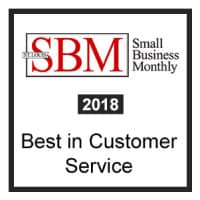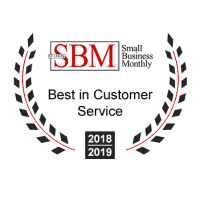It is a common enough request. Companies come to Seafoam Media, or any other SEO company, wanting to "rank higher" on Google. As brick and mortar stores compete with their online counterparts it is only natural to want to level the playing field, digitally. Even service based industries, at least those with a physical location from which they operate, need to be aware of the potential revenue that SEO can drive toward their business. This is why, at Seafoam Media, we take a holistic approach to search engine optimization. It is not enough to simply want to rank higher, local businesses have a crucial opportunity to optimize their presence across the Google platform. And while the Google algorithm is a complex and mysterious beast, understanding local SEO is an important piece of the puzzle; one your company can't afford to ignore.

First things first, what is local SEO? There are three key places on the Google Search Result Page or SERP that will help you understand local SEO. At the very top and very bottom of the page, you may see Google's pay per click section, the ads. These are clearly denoted with a small yellow "ad" box next to the result. These are chosen based on a bidding system for keywords. Below that section are the organic results, which is typically what people think about when they think of SEO. These are based on a complicated algorithm of keywords, search phrases and relevant content among other things. In between these two worlds, for businesses with a local presence, is local SEO.
Rather than index based on a keyword or phrase, local SEO ranks based on a physical address and phone number. You may notice that on some searches Google offers a map with pertinent location pins. Google chooses these locations based on not only your search term, but also the physical location of your IP address. The intention, on Google's part, is to offer the closest matches for the user's convenience. This is the local portion of search, and it should be pretty obvious why this is so important to optimize. Local SEO sends potential customers, those that are searching for your product or service, to your door. This is becoming increasingly more important as people utilize their phones to search, as we showcased in a blog post. Local SEO plays a large factor in what appears when you ask Siri where to find a pizza place near you.
While no one knows the exact formula, it is a good guess that Google looks to several sources for its local data, including Apple Maps, Google Places, Yelp and YP.com. It is a safe assumption that Google sources its local data from a bevy of reputable (Not Spammy!!) online directories for some of this local data. It also appears that online reviews help to shape the local love, and the more solid sources for these reviews the better. We know that Google loves Google, so Google reviews play a part in the algorithm, but it appears that any online reputable online review can help. Like all other aspects of SEO, there are a lot of factors that go into optimizing your brand for local SEO; and there is no quick solution. Slow and steady will win the race, but there are some tips to bear in mind as you navigate Local SEO.
These are just a few tips to help in understanding Local SEO. As you can see, it takes quite a bit of time and effort to really stand out with local SEO. If you want to know more about what local SEO can do for your brand, contact Seafoam Media today.























